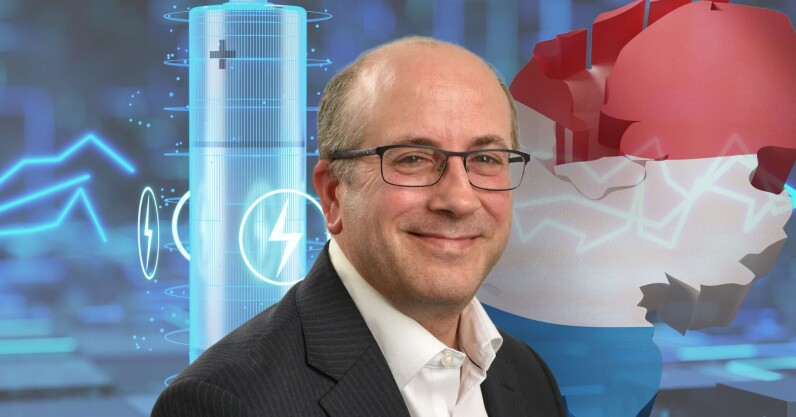
How can Dutch battery startups win big? Focus on supply chain ‘pinch points,’ says CEO

Dutch battery startups must innovate at “critical points” in the supply chain to compete globally, says Kevin Brandish, CEO of Eindhoven-based battery company LionVolt.
The comments come at a difficult time for the European battery sector, which has been left in difficulty following the recent collapse of Northvolt. The Swedish startup’s gigafactories were perhaps the continent’s best hope for a homegrown battery success story.
Northvolt’s failure serves as a warning about the enormous challenges in scaling battery production, from securing supply chains to managing infrastructure costs and maintaining investor confidence. But large-scale and rapid construction is not the only way to capitalize on the battery boom.
“While other European countries have focused on gigafactories with varying degrees of success, the Netherlands should use its historical advantages to support companies developing the next generation of subcomponents,” Brandish said.
ASML embodies this strategy. The Dutch company is The only manufacturer of advanced photolithography machines used by all of the world’s largest chip manufacturers. Without ASML machines, the entire chip supply chain would collapse.
It’s an approach Brandish says deep-tech and climate-tech startups could benefit from emulating. “Focusing on bottlenecks allows startups to minimize infrastructure costs while targeting areas with high innovation potential,” he said.
LionVolt emerged from the TNO center in Holst in Eindhoven, the Netherlands in 2020. The startup is working on a 3D lithium metal anode that improves energy transfer in lithium-ion, sodium-ion, and eventually solid-state batteries.
The anodes contain a film composed of billions of solid pillars, creating a proprietary three-dimensional architecture with a large surface area. Compared to conventional anodes, the ions only have to travel a short distance, which greatly speeds up charging and discharging.
LionVolt anodes can be used in the production processes of existing giant plants, reducing risk and capital requirements. This could be key to the survival of startups operating in the highly competitive global battery market.
Lionvolt is one of several Dutch companies pioneering new ways to create better batteries, driven by growing demand for electric vehicles and other electronic devices.
“In 2024, the Dutch ecosystem showed significant progress, especially in the lithium-ion battery market,” Brandish said.
LeidenBankAnother Eindhoven-based startup is working on silicon anodes that could make lithium-ion batteries hold more charge. Meanwhile, CarbonXTU Delft has developed an alternative to graphite in batteries. It is made from recycled materials and could help reduce dependence on China, which controls the world’s graphite supply.
LionVolt’s first pilot production line is scheduled to open in early 2025, with construction already well underway and key equipment ordered. The company told TNW it is now embarking on a Series A funding round as it seeks fresh capital to fuel its expansion plans.
While Brandish is optimistic about the trajectory of the Dutch deep tech ecosystem, he stressed the need for further government support and cross-border cooperation.
“Given the relatively small size of the Netherlands, establishing closer ties with financial institutions such as deep tech venture capital funds will allow public subsidies to be quickly concentrated alongside venture capital funding,” he said.
Government funding also needs to be channeled more quickly to develop promising ecosystems before they lose momentum or migrate elsewhere, he added.
2025-01-07 16:43:09